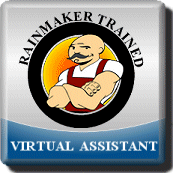Getting and staying organized in business and in our personal lives is extremely important. Where there is no order there is chaos, confusion and the inability to focus or grow. The inability to organize does not allow one to prioritize, thus not being able to set or meet and exceed ones goals.
Small business owners wear many hats and occupy many different roles within their businesses, so the need to be organized is top priority to prevent very important tasks from not being carried out effectively and efficiently.
Do you want your business to grow, do you want to stay motivated and also allow your creative juice to flow?
Do you want to have a balanced personal and business life?
Then get organized!
SCORE Offers
Five Ways to Organize Your Business for SuccessWashington, DC—An improving economy offers new opportunities for America’s entrepreneurs to start and grow their own businesses. Small business owners are busy, and it takes organization to create more time to focus on what’s most important to the business. SCORE “Counselors to America’s Small Business” offers five ways to better organize your daily business—to improve overall effectiveness.
By organizing your workspace, you save time otherwise wasted looking through piles or searching for a missing document on your computer. First, establish a plan. Prioritize your list and set a deadline to complete it.
Invest Time WiselySpend time on what you do best, whether it’s serving clients, generating sales or setting long-term strategies. Allocate 60 to 70 percent of your time to tasks that have the most impact on your business. Create a daily plan and follow it. When contacting people, leave detailed voice and email messages that state exactly what you need, so the person will be prepared with the information when they respond to you.
Annually Update Financial & Tax FilesPurge last year’s files from your office area and place them in storage. This will make room for this year’s important documents and receipts that may require more immediate access. Files that you do not use anymore, but may need in the future, are best stored in file boxes. Keep your tax returns and supporting records for six years. File boxes can be stored on shelves, in a closet or at an off-site storage center. Organize your files by color-coding, alphabetically, or by type of file.
Make Sense of Online File FoldersOrganize the files on your work computer and shared drive to match the structure of your business for easy access by you and your staff. Name your online folders with headings such as marketing, sales and customer service. You may want file folders specifically for real estate, leases, and equipment. Make information easy to find by clearly naming files, saving files to appropriate folders and creating shortcuts on your desktop.
Manage Incoming Mail & Email Contacts Set aside a specific time of day to sort your inbox. Throw away junk mail, forward mail to the appropriate people when necessary, open and separate the rest of the mail, and file it when appropriate. And, set periodic times to read and respond to email. Concentrate your time on leading the business and serving customers. Establish a routine for these routine tasks, so they don’t waste your valuable time.
Clear Your DeskAn uncluttered desk sends a message to you and your team that you are focused on the most important business at hand. Throw away items you don’t use, and keep only the supplies you regularly use on your desk. Use letter trays and file sorters to avoid piles. Clear out your desk drawers and designate a purpose for each one. To learn more about these and other tips for business success, visit the Learning Center and Business Toolbox on the award-winning SCORE Small Business Web Site at www.score.org.
Also see SCORE's
60-Second Guide to Organizing Your BusinessBy Agnes Ikotun
Licensed REPA










